Alumni of the Year; Eng., ‘Dr.’ Peter Macharia
In the build-up to the 1992 multi-party general elections and after, Kenya witnessed the worst spell of ethnic violence in the history of the country. As multiparty politics gained momentum and the government of the day endeavored to push back, politicians and so called ‘leaders’ manipulated the long-simmering tribal tensions among communities, triggering an all-out wave of senseless violence.
Molo, Nakuru County was at the epicenter of the storm. Tension between two rival communities degenerated fast and the result was catastrophic. History records that the violence in the larger Rift Valley region left close to 5,000 people dead, over 75,000 displaced. Peter Macharia was born in Molo, just a few years before the violence, on the twenty second day of August, 1988. Barely three and a half years later, he was caught in the middle of a senseless war, a violence his young innocent mind was not ready to comprehend, or accommodate. Born to a mother from Nyandarua and a father from Kiambu, the variables of the war dictated that they didn’t belong in Nakuru.
Victims of the 1992 violence were either left homeless, landless, destitute, injured, abused, or in the worst case scenario, dead. And this is just a few of the catastrophic consequences of the menace. Peter recalls, “Everything we had was taken from us. We were left empty, without anything, and no one to turn to. We had to flee the area, with nothing but the clothes we had on,”
But hold on, this is not a sad sob story. This is not a tale of poking past atrocities and triggering bitter sentiments. This is a story of a boy who dared to dream against all odds. A boy who looked what seemed like a bleak future right in the eye and declared he would master it and change the script. A story of stubborn resilience.
Peter was only three and half years old when they were forced to flee from Nakuru to Nyandarua. With a total of six other siblings, their now destitute parents could not take care of them with no proper source of income. “My mother would hawk jembes, clothes, anything to make ends meet and pay our school fees,” he narrates. At class five, an aunt would come to his rescue and whisk him away to a children’s home. Yes, that was a huge reprieve in comparison to the living conditions at home at the time.
Somehow, irrespective of the difficulties, young Macharia performed very well in school, something that would see one of his uncles start calling him ‘Doctor’ at a very tender age. And so he vowed to become a doctor someday. With all its inadequacies, Peter reminisces about the children’s home, St. Nicholas Children’s Home in Nakuru, with proud nostalgia. After all, it was his home for nine years, his entire primary and secondary school life. Mostly because back home, there was nothing to fall back to. He still remembers the words of his dad at the time; ‘Usiposoma kwa bidi, utakuja pia kung’ang’ana na hii maisha unaona tuko nayo hapa,’~ If you don’t work hard, you’ll be subject to this kind of life you see us living. And so he worked even harder. At the Children’s home, no one had ever made it to the University, but Peter was determined to change the narrative.
“In 2007 I sat my KCSE. I wanted to be a Medical Doctor, and vowed that if I got a B+ I would repeat. I got an A-, instead of the A I so badly wanted. It was good enough for me, but I could not do Medicine,” Peter recounts. Maybe it was the land challenges that had characterized his entire childhood, added to a brief snippet about geographic information system (GIS) in his Computer class in High School that informed his next choice. He settled for a B.Sc. in Geomatics Engineering and Geospatial Information Systems in JKUAT as the first choice.
While most students join University with the excitement of experiencing the ride, Peter Macharia was already worried about what he would amount to after University studies even before he commenced. He tells me how he sought to find out who chaired the Department, even before admission letters were dispatched. He was passionate about teaching, so he inquired from the then Department Chair, Prof. Edward Waithaka, who urged him to do his best in class to achieve that dream.
“I worked towards getting a first class from first year so I could get a chance to get a Masters scholarship in the University and a teaching job,”
Upon joining the University, Peter recounts how he learnt of the Vice Chancellor’s award, which includes a token prize for the best student. “I worked even harder to get the VC’s award, to complement my resources. You see, I was solely relying on HELB for my sustainability, so I figured the token prize would boost my income. I only missed it in first year then got it for the rest of my stay in the University.” Needless to say, he graduated with a First Class Honors.
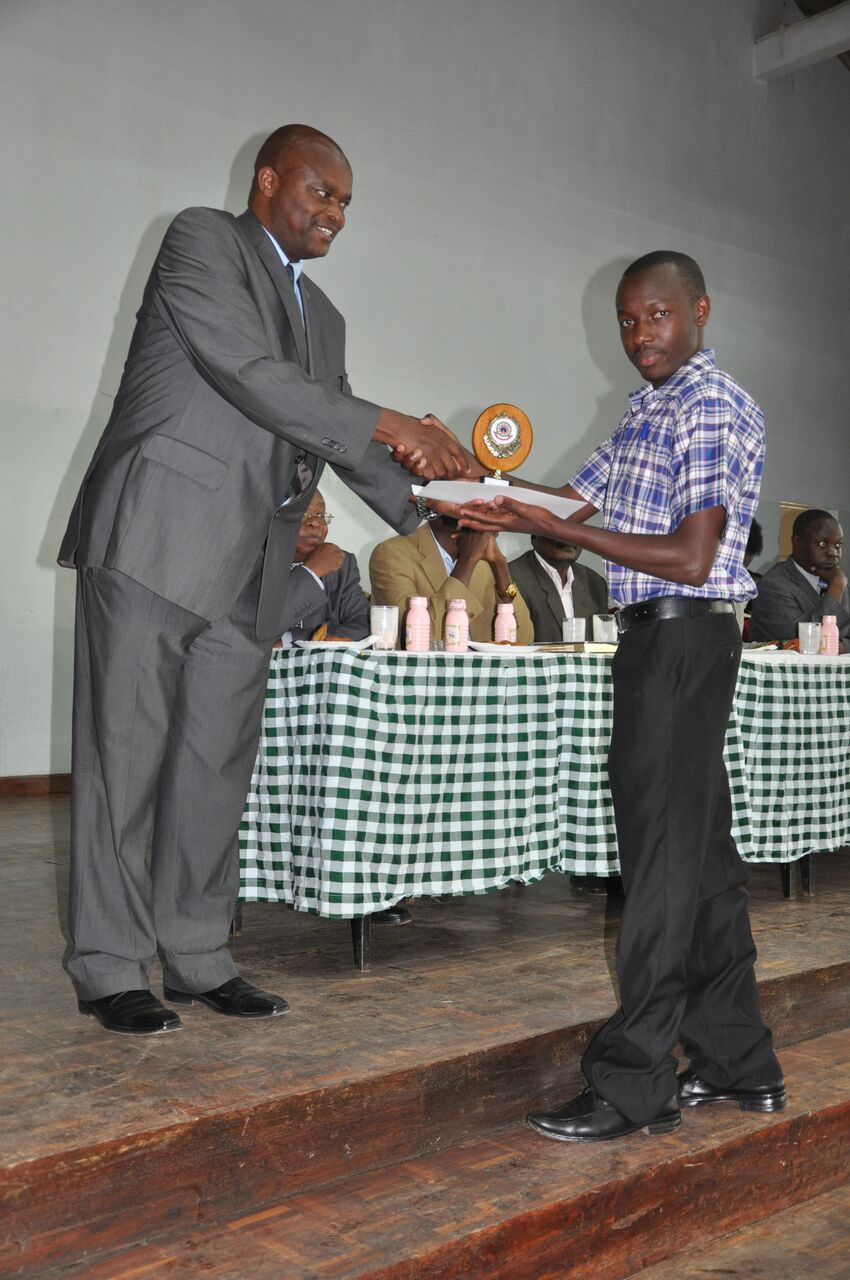
We have been having this conversation at the KEMRI Wellcome Trust offices in Kilimani, Nairobi. This has been Peter’s work and study centre since 2015. He looks back at the events that have shaped his life so far, and some of the key highlights of his JKUAT journey. He jokingly comments that now he no longer takes beans. “You see, the food in the mess was affordable, which meant it was the only option I had. Beans nilikula mess ni mingi sana, I think I ate enough for a lifetime. It used to be beans, ugali, veges, omelette na coffee, or simply 37 as we called it,” he chronicles.
So how did you get here?
First let me backtrack a bit. Back in Campus I started going for internships at 2nd year, at a company called Topsurv Geosystems. The boss was impressed with my work so much that he offered to pay my fees for 3rd year, and further offered to give me a job upon finishing my studies. Actually after this, my trips to the mess reduced. Life got a bit sustainable. Upon finishing my studies, I went back to the company in 2014 to undertake some survey work. I remember while working there, I was the first surveyor on the ground at Tatu City, since the company had been contracted for the work. Until KEMRI came calling…
What informed the change?
My boss then wanted me to stay around, but I always thought I belonged in academia. Then I saw a KEMRI Wellcome Trust advert, a day to the deadline. It was a position for a postgraduate diploma in Health Research Methods, where you’d work under a senior research scientist and undertake a project. I applied, and after thorough screening, I was selected. So in January 2015, I reported.
Fortune indeed favors the prepared. He joined the Malaria Public Health and Epidemiology Group at KEMRI Wellcome Trust. He was turning out to be a Doctor of sorts after all. Upon completion of his Diploma, he got three separate scholarships and a job offer at the KEMRI Wellcome Trust. He opted for the HELB postgraduate Scholarship which secured him a slot, once again at JKUAT for M.Sc. in GIS and Remote Sensing, which he undertook part time as he continued with his work at KEMRI.
Peter Macharia graduated with his Masters Degree in the recently held 30th Graduation Ceremony in November, but way before that, he had already set in motion yet another upcoming milestone. “I started my PhD in February after winning a PhD studentship under the Initiative to Develop African Research Leaders – IDeAL,” he reveals. He is undertaking the PhD at the Open University, UK, in partnership with the KEMRI Wellcome Trust. His PhD focuses on modelling spatial-temporal trends and determinants of under-five mortality at sub-national levels in Kenya over the last four decades. Yes, I know it’s quite a mouthful.
So what has been your drive this far?
That would be my past. It makes me want to better the society. Anything to improve livelihoods, and generally contribute towards building a better country for everyone. I hope I make the world better, simply because I did something right. I always go back to that children’s home, try to encourage them, and tell them they can accomplish anything they put their mind to if they believe and put in the hard work.
What don’t you want to die without accomplishing?
Getting this PhD. I want to contribute as much as I can to science and new knowledge. Oh, and I need that Doctor title.
How did JKUAT shape your professional journey?
Without JKUAT, I wouldn’t be here today. It opened my eyes to a world of endless possibilities, backed with an enabling learning environment and very supportive lecturers.
In your current capacity, what has been some of the challenges?
The research world can be very tasking and time-consuming, and sometimes you look at your peers who didn’t venture into research doing so well and much better. It requires dedication. It demands more than just passion. What keeps me going is the knowledge that I’m taking an active role towards making life better.
From a destitute background, displaced repeatedly in his own country, to an accomplished and even further promising Research Scientist, Peter Macharia is a testimony to the endless possibilities we can have. When we believe. When we put in the hard work and resiliently persist towards changing the narrative. He is our alumni of the year. I hope his story inspires you to believe.
****
You can link up with Peter via this link.
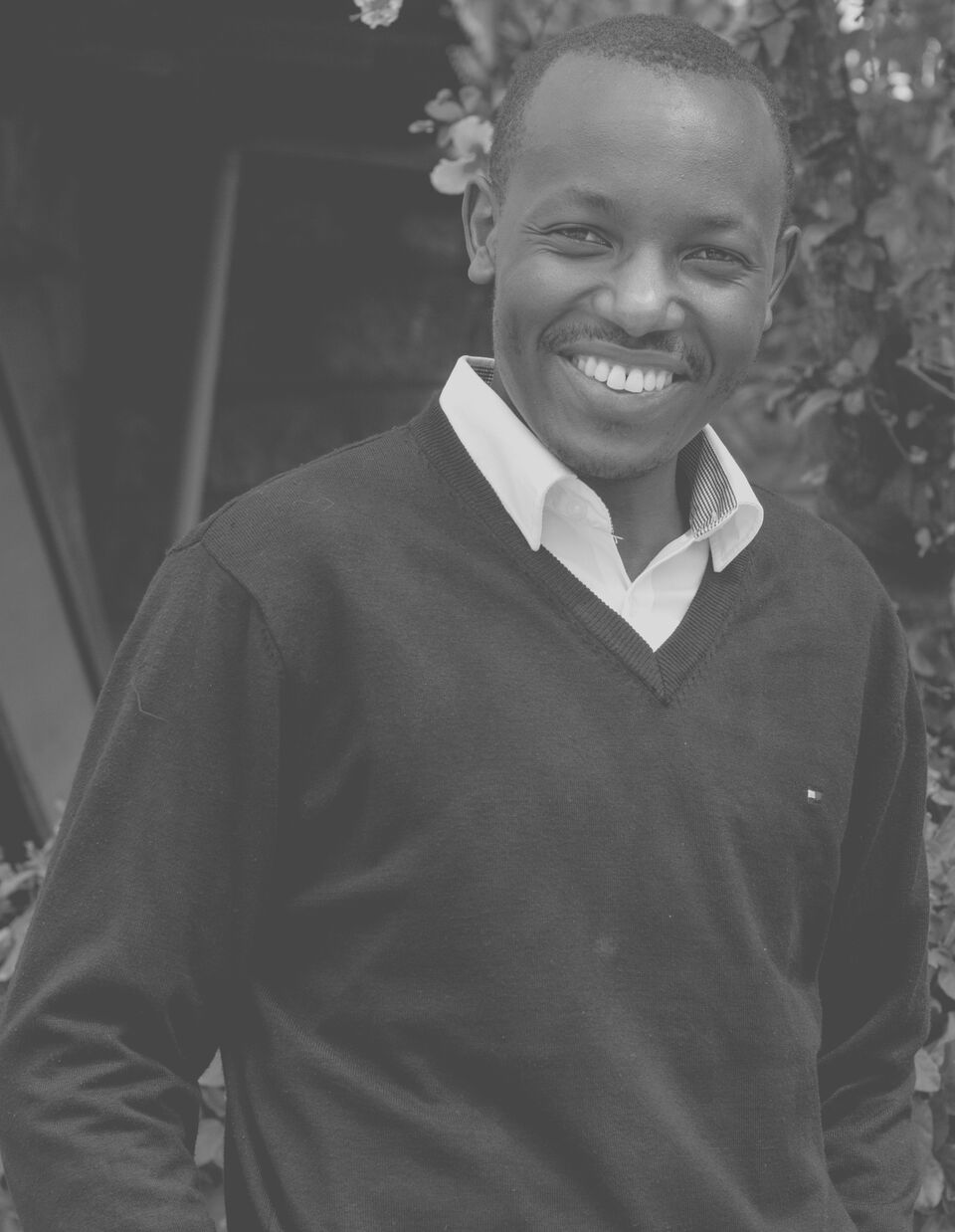
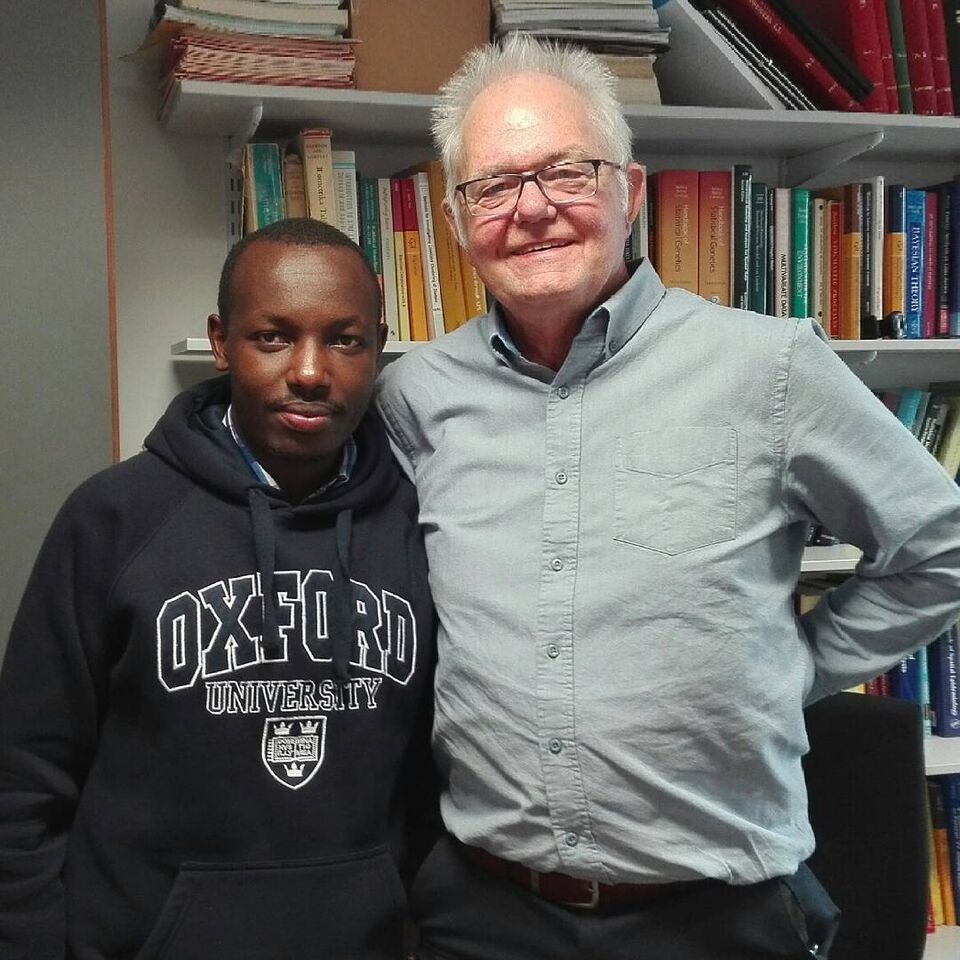
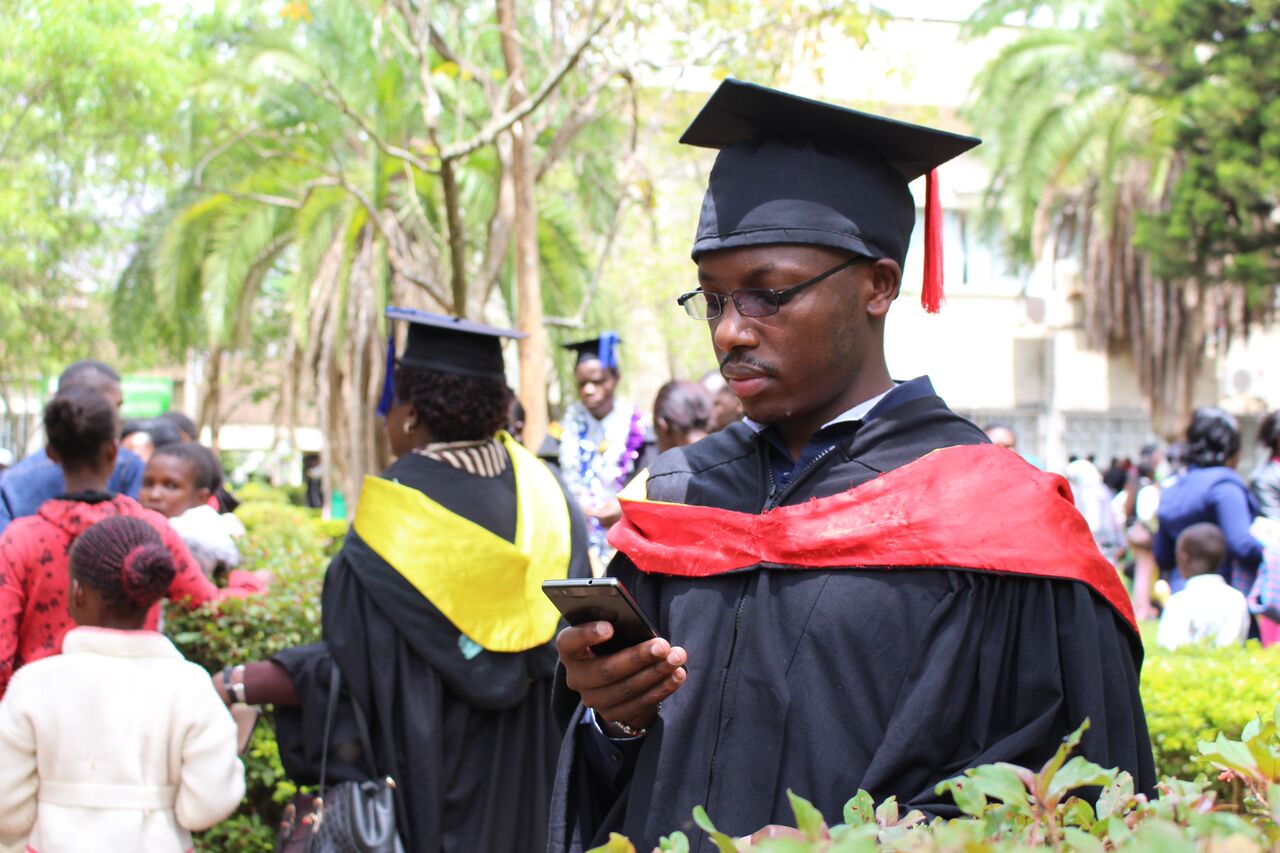

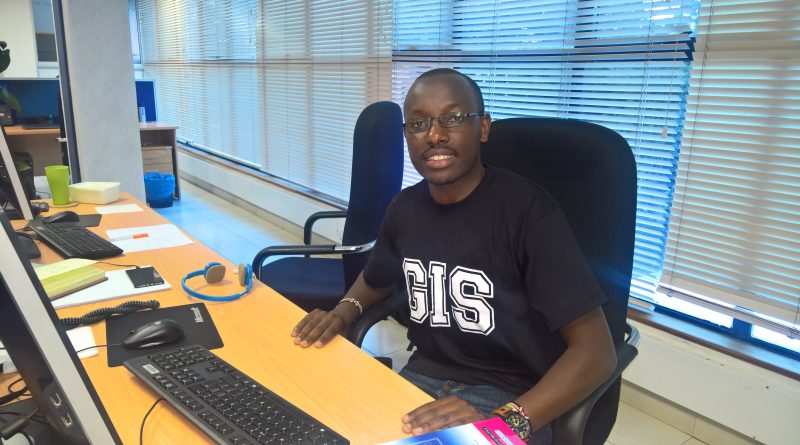

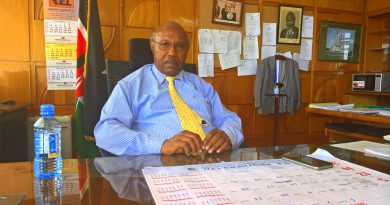

Nice work Daktari. Best regards
Great!
So inspired !
Go Go Go you have all what it takes.